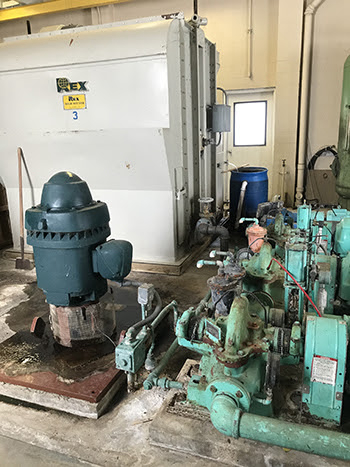Michigan’s 2023 budget provides $34 million for fish hatchery upgrades, new Great Lakes research vessel

Fish hatchery infrastructure and maintenance and fisheries survey vessel modernization efforts will benefit from the state budget recently approved for fiscal year 2023. The budget includes $30 million for fish hatchery infrastructure improvements and $4 million to replace an outdated Great Lakes survey vessel – all of which are critical to better supporting and understanding Michigan’s world-class fisheries.
“Michigan’s fish and aquatic habitats are among our state’s greatest natural, recreational and economic assets, and we must continue working together to protect them for future generations,” said Gov. Gretchen Whitmer. “Together with the historic, $450 million investments in our parks and public lands under the Building Michigan Together Plan I signed earlier this year, our bipartisan budget represents a once-in-a-generation investment that will help us continue safeguarding our most precious natural resources.”
For more than 120 years, the Michigan Department of Natural Resources has operated fish hatcheries to produce fish for stocking lakes and streams across Michigan. Today, there are six hatchery facilities – in Alanson, Beulah, Harrietta, Manistique, Marquette and Mattawan – vital to managing and maintaining the state’s fisheries. At 20 years old, Oden State Fish Hatchery is the newest facility, with the others ranging from 40 to over 50 years old. Though staff have done their best to keep operations running and fish thriving, the aging facilities have developed a large backlog of critical infrastructure maintenance needs.
With the $30 million investment in hatcheries, the DNR will upgrade production water supplies, replace roofs, upgrade outdated electrical distribution systems, repair and replace deteriorating asphalt, upgrade water aeration systems, replace outdated backup power generators and provide biosecurity enhancements that better protect fish health.
“Upgrading electrical distribution systems, replacing outdated backup power supplies and improving water supplies would all reduce the likelihood of catastrophic fish loss and increase our ability to manage disease issues,” said DNR Director Dan Eichinger. “Overall, this investment will improve rearing conditions, which will translate into more consistent fish production levels and high-quality fish.”
One such targeted biosecurity enhancement is the construction of a dedicated cool-water facility at the Wolf Lake State Fish Hatchery, in Mattawan. Currently, walleyes hatched at this hatchery are incubated in the same building where steelhead and Chinook salmon production occurs, and that creates significant biosecurity vulnerability for both groups of fish.
The proposed, new facility would include a production building with an incubation area for hatching of walleye and muskellunge eggs, a tank room for early rearing of muskellunge, an egg receiving room for disinfection of incoming eggs, and equipment for heating and chilling of water for more efficient hatching management.
The remaining $4 million will be used to replace the DNR survey vessel Steelhead, which has been in operation for 54 years.
“The S/V Steelhead is more than 20 years older than the average Great Lakes research vessel, which means we are spending more each year on maintenance issues and increasingly struggle to find parts to keep the vessel operational,” said DNR Fisheries Division Chief Jim Dexter. “Given the age, maintenance costs and large carbon footprint of this survey vessel, a replacement is necessary to provide the needed level of assessment capabilities to meet fisheries management information requirements.”
Such vessels play a vital role in conducting research and completing surveys of the Great Lakes. The data collected assists in making sound management decisions, provides assessment capabilities for Tribal Consent Decree management and supports aquatic invasive species surveillance. Better, more comprehensive information about trends in fish populations means healthier, more robust fisheries in Michigan waters.
Learn more about how the DNR makes decisions on how best to manage Michigan’s fisheries at Michigan.gov/Fishing. Follow DNR Fisheries Division news at Twitter.com/MDNR_Fisheries.
Contact: Ed Eisch, 231-499-4118





